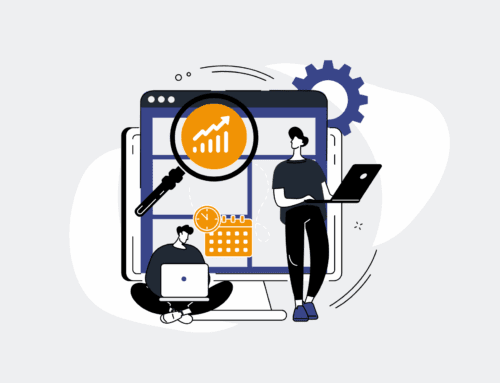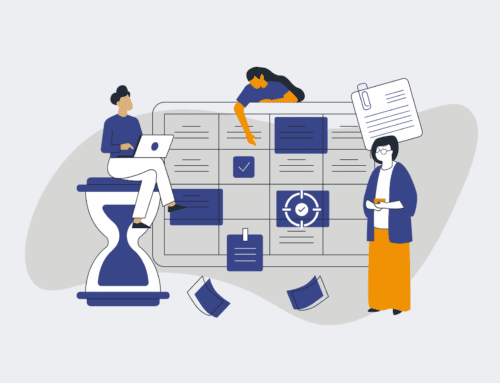The ROI of AI Onboarding: Quantifying Efficiency Gains for HR Leaders
For too long, onboarding has been viewed as a necessary administrative burden, a rite of passage often fraught with paperwork, disjointed processes, and missed opportunities to truly integrate new hires. HR leaders understand the critical role effective onboarding plays in retention and productivity, yet the manual effort and inherent inefficiencies often overshadow its strategic potential. In today’s rapidly evolving talent landscape, the question is no longer *if* AI can assist in onboarding, but rather, what is the measurable return on investment for integrating artificial intelligence into this foundational process?
At 4Spot Consulting, we approach HR challenges with a keen eye on automation and quantifiable outcomes. Our experience with high-growth B2B companies consistently reveals that the true cost of inefficient onboarding extends far beyond HR’s immediate workload. It impacts time-to-productivity, employee engagement, and ultimately, your bottom line. AI isn’t just a buzzword; it’s a strategic lever for transforming these processes into streamlined, data-driven engines of efficiency.
Beyond the Buzz: Deconstructing AI’s Value in Onboarding
The immediate appeal of AI in onboarding lies in its capacity to automate repetitive, low-value tasks. Imagine the hours saved when AI handles document collection, initial form filling, background checks, system access requests, and even initial policy acknowledgements. This isn’t just about shuffling digital papers; it’s about freeing up your high-value HR professionals to focus on human connection, mentorship, and strategic initiatives that truly impact employee experience and company culture. The efficiency gains are tangible and immediate, reducing the administrative burden by significant margins.
Consider the cost of human error. Manual data entry, missed follow-ups, or inconsistent communication can lead to compliance risks, frustration for new hires, and costly rework. AI-powered systems ensure consistency, accuracy, and adherence to established protocols, virtually eliminating common pitfalls. This not only mitigates risk but also builds trust and confidence from day one, signaling to new employees that your organization values precision and professionalism.
Accelerating Time-to-Productivity: A Direct Impact on Revenue
One of the most compelling ROI metrics for AI onboarding is the acceleration of time-to-productivity. A new hire who feels supported, has all necessary resources, and understands their role and expectations quickly becomes a contributing member of the team. Disjointed onboarding, conversely, can delay a new employee’s full contribution by weeks, even months. For revenue-generating roles, this delay directly translates into lost potential income.
AI can personalize the onboarding journey, ensuring relevant training modules, resources, and introductions are provided at the optimal time. It can serve as an intelligent assistant, answering common questions, guiding new hires through initial tasks, and even scheduling introductory meetings with key team members. This personalized, always-on support reduces anxiety, boosts confidence, and drastically shortens the ramp-up period, allowing new hires to engage with their core responsibilities faster and more effectively. Quantifying this means calculating the difference in time it takes a new hire to reach full productivity and multiplying it by their average daily contribution, revealing significant financial gains.
Enhancing Employee Experience and Retention: The Unquantifiable Becomes Quantifiable
While often harder to put a precise dollar figure on, the impact of a superior onboarding experience on employee retention is profound. Employees who have a positive onboarding experience are significantly more likely to stay with a company long-term. Turnover is expensive, costing anywhere from 50% to 200% of an employee’s annual salary, depending on the role. By improving the experience, AI directly contributes to reducing these costly departures.
AI can facilitate continuous feedback loops, identify potential pain points for new hires, and even predict flight risks by analyzing engagement data. This proactive approach allows HR to intervene and provide support before issues escalate. Moreover, a smooth, professional, and engaging onboarding process creates a powerful first impression, aligning new hires with company culture and values from the outset. This fosters loyalty and reduces the likelihood of early attrition, turning what might seem like a soft benefit into a very hard financial saving.
Strategic Implementation for Maximum ROI
Achieving these efficiency gains and ROI isn’t about simply adopting AI tools; it’s about strategic implementation. At 4Spot Consulting, our OpsMap™ diagnostic is precisely designed to uncover these opportunities within your unique HR ecosystem. We don’t just recommend technology; we map out the specific pain points, identify where AI and automation can deliver the most impact, and then build (OpsBuild™) bespoke solutions that integrate seamlessly with your existing systems.
The ROI of AI onboarding is not a theoretical concept; it’s a measurable outcome waiting to be unlocked. By leveraging AI to automate repetitive tasks, reduce errors, accelerate time-to-productivity, and significantly enhance the employee experience, HR leaders can transform onboarding from a cost center into a strategic asset that delivers quantifiable financial returns. It’s about building a future-proof HR operation that is efficient, scalable, and employee-centric.
If you would like to read more, we recommend this article: The Intelligent Welcome: AI Onboarding for Next-Level HR Efficiency and Employee Experience









